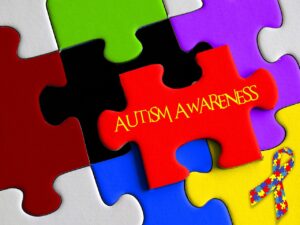
Driving is a lifelong responsibility, and education should reflect that. While young drivers receive extensive instruction before hitting the road, many adults either skip formal training or haven’t refreshed their knowledge in years. Programs like adult driver education in Texas help bridge that gap, ensuring all drivers, regardless of age, have the tools they need to drive safely and confidently.
These courses go beyond the basics, offering real-world strategies that help adults navigate today’s complex traffic environments, reinforce critical skills, and improve long-standing habits that may no longer align with current road laws.
Understanding the Difference in Learning Needs
Adults often bring years of life experience and existing habits to the wheel. Unlike teens who are starting fresh, mature learners may need to reframe outdated practices or overcome anxiety from past incidents. That’s why it’s important to recognize the contrast between teen driver’s ed and adult driver’s ed.
Adult-focused education typically offers more situational training, emphasizing decision-making, hazard anticipation, and responsible reaction under pressure. The structure is less about memorization and more about practical applications, which better suit the learning styles and life experiences of adult participants.
For those getting licensed later in life or returning after a break, adult-specific instruction offers a more focused and respectful environment to regain driving readiness.
Updating Skills and Enhancing Safety
Rules of the road can evolve significantly over time. From traffic signals and speed limits to right-of-way procedures, laws shift to reflect safer driving practices. Without regular updates, even seasoned drivers may find themselves unaware of current expectations.
One of the biggest advantages of structured learning is how adult driver education helps improve driving skills by reintroducing legal updates, safety guidelines, and driving techniques. Courses often include topics like defensive driving, navigating freeway systems, and managing inclement weather—areas where overconfidence or outdated knowledge can lead to accidents.
This refreshed understanding reduces errors and improves reaction times, which are crucial in preventing collisions and making roads safer for everyone.
Building Confidence and Reducing Risk
A surprising number of adults struggle with driving-related stress. Some are uncomfortable with night driving, while others avoid highways altogether. Fear and hesitation behind the wheel can be just as dangerous as recklessness.
Adult programs often include confidence-building elements designed to help drivers face these fears gradually. Instructors focus on calm, controlled practice and provide supportive feedback that helps learners develop trust in their own skills. Over time, this leads to a smoother, more relaxed driving experience.
Better confidence means better decisions, fewer sudden stops, clearer signaling, and more awareness of surroundings, all of which contribute to a safer driving culture.
Conclusion
Professional instruction tailored for adults plays a vital role in keeping roadways safer. By focusing on practical application, updated regulations, and confidence-building strategies, these programs address the specific needs of mature drivers. It’s never too late to learn or refresh what you already know—because better the habits behind the wheel lead to better outcomes for everyone on the road.








